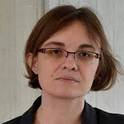
Indeed, everyone who attempted to read the still controversial Corpus Areopagiticum either in the original Greek or in any translation, even if supplemented by abundant annotations, would have to acknowledge numerous interpretative questions these texts raise. Namely, the Corpus blends seemingly irreconcilable pagan and Christian thoughts. On the one hand, the Corpus stems from philosophical Neoplatonic writings attributed to Dionysius the Areopagite—an Athenian convert under Paul, the “first intellectual” Apostle who himself was concerned mostly with debatable questions about what it means to be Christian (Acts 17:16 34). other hand, the corpus includes numerous sixth-century and later theological Christian collations which tended to streamline the controversies derived from recognition of certain elements in Dionysius’ work common to pagan and Jewish understanding of God. Thus, by its definition, this contentious corpus is far from being an easy, straightforward text. At the same time its attractive philosophical tone is extraordinarily open and flexible to various, even contradictory interpretations.
Available at: http://works.bepress.com/jelena_bogdanovic/8/
